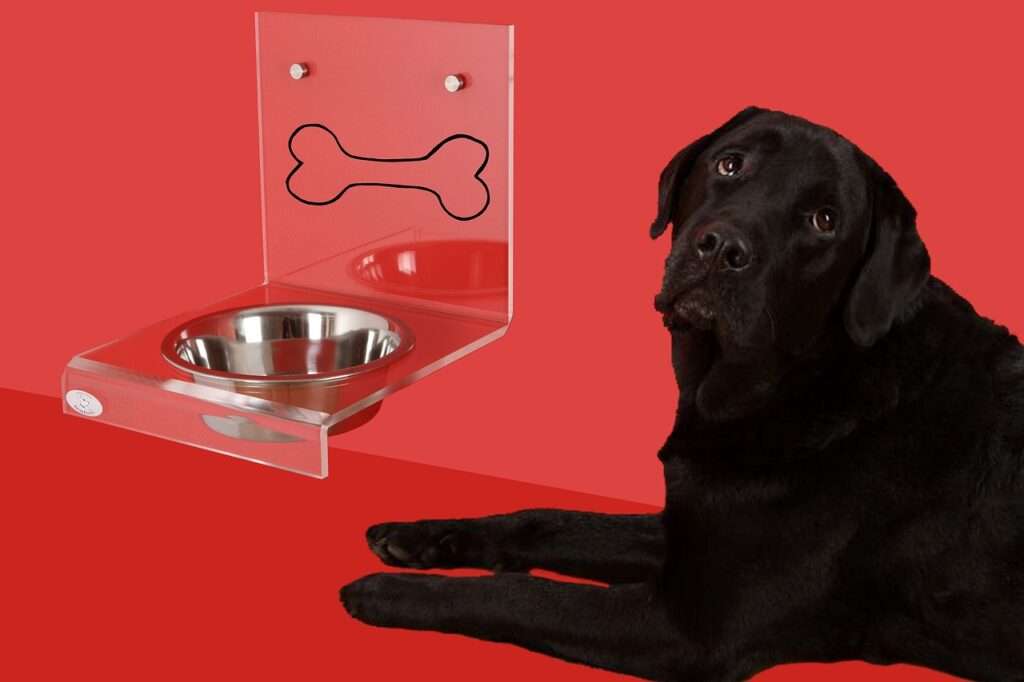How to Stop My Dog from Throwing Up after Drinking Water: Expert Tips and Solutions
Welcome to BarkLikeMeow’s comprehensive guide on preventing dog vomiting after drinking water. We understand that as a dog owner, your furry friend’s health and well-being are of utmost importance to you. It can be concerning and distressing to witness your beloved pup experience digestive issues, particularly after something as basic as drinking water.
In this article, we will delve into the common causes behind this problem and provide you with practical tips and solutions to help alleviate your dog’s discomfort and ensure their hydration without any untoward incidents.
Understanding the Causes of Dog Vomiting
To comprehend why dogs sometimes vomit after drinking water, it’s crucial to gain a basic understanding of their digestive system. Canines possess a specialized digestive tract designed to break down and process the food they consume. Their stomachs produce digestive enzymes and gastric juices to aid in the breakdown and absorption of nutrients.
Various factors can contribute to your dog experiencing bouts of vomiting after drinking water. Let’s explore these causes in detail:
- Drinking Too Quickly: Some dogs have a tendency to gulp down water rapidly, especially when they are thirsty or excited. This rapid ingestion can result in excess air being swallowed, leading to stomach discomfort and subsequent vomiting.
- Overeating or Excessive Water Consumption: Similar to humans, overeating can overwhelm a dog’s digestive system, causing discomfort and potential vomiting. Additionally, excessive water intake, especially after a prolonged period without hydration, can disrupt the delicate balance in their stomach, triggering vomiting.
- Allergies or Food Sensitivities: Dogs, like humans, can develop allergies or sensitivities to certain foods or ingredients. If your dog has an adverse reaction to something in their water or a particular water source, it can lead to vomiting.
- Gastrointestinal Disorders: Underlying gastrointestinal issues, such as gastritis, gastroenteritis, or inflammatory bowel disease, can make your dog more prone to vomiting, including after drinking water.
- Foreign Objects or Toxins: Ingestion of foreign objects, such as grass, hair, or non-food items, can cause irritation in the stomach, resulting in vomiting. Additionally, certain toxins or harmful substances, if consumed, can lead to gastrointestinal distress and subsequent vomiting.
- Side Effects of Medications: Some medications can have gastrointestinal side effects in dogs, including nausea and vomiting. If your dog recently started a new medication regimen, it’s worth considering this as a potential cause.
- Stress or Anxiety: Dogs, like humans, can experience stress and anxiety. These emotional states can manifest physically, leading to gastrointestinal disturbances, including vomiting after drinking water.
- Heatstroke or Dehydration: In hot weather, dogs can suffer from heatstroke or dehydration if they are not provided with enough water or if they overexert themselves. These conditions can contribute to vomiting episodes.
By understanding the potential causes behind your dog’s vomiting after drinking water, you’ll be better equipped to address and prevent such occurrences in the future. In the following sections, we will delve into practical steps you can take to mitigate this issue and ensure your furry friend’s well-being.
Recognizing the Symptoms of Dog Vomiting
To effectively address your dog’s vomiting episodes, it’s essential to recognize the common signs that indicate they may be experiencing discomfort. Look out for the following symptoms:
- Excessive Drooling: Excessive saliva production, often accompanied by lip-smacking or drooling, can be an early indication that your dog may vomit after drinking water.
- Nausea and Retching: If your dog appears restless, exhibits signs of discomfort, and repeatedly tries to vomit or retch without producing anything, it may be a clear indication of nausea and a precursor to vomiting.
- Coughing or Gagging: Persistent coughing or gagging after drinking water may suggest that the water is not being properly ingested and may be irritating your dog’s throat or airways.
- Regurgitation: Regurgitation differs from vomiting in that it is a passive process. If your dog brings up undigested food or water shortly after consumption, without the forceful abdominal contractions associated with vomiting, it may indicate regurgitation.
- Abdominal Discomfort: Watch for signs of abdominal discomfort, such as hunching over, sensitivity to touch, or restlessness, which can indicate your dog is experiencing gastrointestinal distress.
- Loss of Appetite or Weight Loss: Consistent vomiting after drinking water can lead to a loss of appetite, resulting in weight loss. If you notice a significant change in your dog’s eating habits or weight, it’s important to address the issue promptly.
In the next sections of this guide, we will provide practical steps and strategies to help prevent your dog from vomiting after drinking water, ensuring their comfort and well-being.
Steps to Prevent Dog Vomiting After Drinking Water

Ensuring that your dog has access to clean and fresh water is essential for their hydration and overall health. Consider the following factors:
- Fresh and Filtered Water: Regularly replace the water in your dog’s bowl to maintain freshness. Additionally, using a water filtration system can help eliminate impurities and provide cleaner water.
- Suitable Water Bowls and Dispensers: Choose bowls that are appropriate for your dog’s size and breed. Stainless steel or ceramic bowls are recommended as they are easy to clean and don’t retain bacteria like plastic bowls can.
- Ideal Water Temperature: Avoid extremely cold or hot water, as it may cause discomfort or shock your dog’s system. Room temperature or slightly cool water is generally preferred.
Encouraging your dog to develop healthy drinking habits can help prevent vomiting episodes. Consider implementing the following practices:
- Slow Down the Drinking Process: If your dog tends to gulp water quickly, it can lead to stomach discomfort and subsequent vomiting. To address this, try using specialized slow-feed bowls or provide smaller amounts of water at a time.
- Divide Meals and Water Intake: Feeding your dog smaller, more frequent meals throughout the day instead of one large meal can prevent overeating and reduce the likelihood of vomiting after drinking water.
- Monitor Water Consumption: Keeping an eye on your dog’s water intake can help you identify any abnormal patterns or excessive drinking that may contribute to vomiting. Ensure that they have access to water but avoid leaving it out all the time if overconsumption is an issue.
In the next section, we will explore dietary considerations that can help alleviate your dog’s vomiting after drinking water and promote digestive health.
When to Seek Veterinary Assistance
While preventive measures can significantly reduce vomiting episodes, certain situations necessitate veterinary care. Keep an eye out for the following red flags:
- Persistent or Chronic Vomiting: If your dog experiences frequent or chronic vomiting episodes, it’s crucial to consult with a veterinarian. This could indicate an underlying medical condition that requires diagnosis and treatment.
- Blood in Vomit or Stools: The presence of blood in your dog’s vomit or stools is a concerning sign that should never be ignored. It may indicate internal bleeding or a gastrointestinal disorder that requires immediate veterinary evaluation.
- Changes in Behavior or Appetite: If your dog exhibits additional symptoms like lethargy, depression, unusual behavior changes, or a loss of appetite accompanying the vomiting, it could be indicative of a more serious health issue.
- Severe Dehydration or Lethargy: Dehydration is a potential consequence of frequent vomiting, and it can lead to serious health complications. If your dog shows signs of severe dehydration, such as sunken eyes, dry gums, or lethargy, seek veterinary assistance promptly.
- Abdominal Pain or Discomfort: If your dog shows signs of significant abdominal pain, such as vocalization, guarding their belly, or refusing to move, it is crucial to consult with a veterinarian to determine the underlying cause.
Remember, your veterinarian is the best resource for diagnosing and treating any underlying health issues that may be causing your dog’s vomiting episodes. Don’t hesitate to reach out to them for professional advice and guidance.
Helpful Tips and Best Practices
Maintaining your dog’s well-being goes beyond addressing the immediate issue of vomiting after drinking water. In this section, we will provide you with valuable tips and best practices to promote a healthy digestive system and ensure your dog’s overall wellness. By incorporating these practices into your routine, you can help minimize the chances of vomiting episodes and enhance your dog’s quality of life.
- Maintain a Consistent Routine for Meals, Water, and Exercise: Establishing a consistent routine for your dog’s meals, water intake, and exercise can contribute to their overall digestive health. Dogs thrive on routine, and maintaining a predictable schedule can help prevent disruptions that may lead to vomiting after drinking water.
- Avoid Sudden Changes in Diet or Water Sources: Abrupt changes in your dog’s diet or water sources can be a trigger for digestive upset, including vomiting. When transitioning to a new food or water source, do so gradually over a period of several days to allow your dog’s system to adjust.
- Observe and Document Your Dog’s Behavior and Symptoms: Keep a watchful eye on your dog’s behavior and symptoms surrounding their vomiting episodes. Note any patterns, triggers, or accompanying symptoms to provide valuable information to your veterinarian, aiding in the diagnostic process.
- Practice Patience and Positive Reinforcement during Training: If your dog tends to drink water too quickly, training can help address this behavior. Practice patience and use positive reinforcement techniques to encourage slower drinking habits. Reward your dog for taking their time and remaining calm during water consumption.
- Maintain Regular Check-ups and Vaccinations: Regular veterinary check-ups and vaccinations are essential for your dog’s overall health. These visits allow your veterinarian to monitor their well-being, identify any potential health concerns early on, and provide appropriate preventive care.
By implementing these helpful tips and best practices, you can create a healthy and comfortable environment for your dog, reducing the likelihood of vomiting after drinking water and promoting their overall well-being.
Conclusion
In conclusion, we hope that this extensive guide has provided you with valuable insights and practical solutions to address your dog’s vomiting after drinking water. Your dog’s well-being is of utmost importance, and by understanding the causes, recognizing symptoms, and implementing preventive measures, you can significantly reduce the likelihood of these episodes.
However, it is essential to remember that every dog is unique, and individual circumstances may vary. If you have any concerns or if your dog’s vomiting persists despite your best efforts, we strongly recommend seeking veterinary assistance. Veterinarians possess the expertise to diagnose underlying health conditions and provide tailored treatment plans for your furry companion.
By maintaining a consistent routine, avoiding sudden dietary changes, and observing your dog’s behavior, you can help promote a healthy digestive system. Patience, positive reinforcement, and regular check-ups are also vital components of providing the best care for your dog.
Remember, as a responsible pet owner, your attentiveness and proactive approach to your dog’s health are key. By staying informed, seeking professional guidance when needed, and showering your furry friend with love and care, you can create a nurturing environment that promotes their well-being and minimizes the chances of vomiting after drinking water.
Thank you for taking the time to read this comprehensive guide. We sincerely hope it has empowered you with the knowledge and tools to ensure your dog’s hydration, comfort, and overall digestive health. Here’s to many joyful and vomit-free water drinking sessions with your beloved canine companion!
Frequently Asked Questions
Q: Is it normal for dogs to vomit after drinking water occasionally?
A: Occasional vomiting after drinking water may not be cause for immediate concern, especially if it happens infrequently and your dog appears otherwise healthy. However, frequent or persistent vomiting should be evaluated by a veterinarian to rule out any underlying health issues.
Q: Should I be worried if I see blood in my dog’s vomit after drinking water?
A: The presence of blood in your dog’s vomit is a concerning sign that should never be ignored. It may indicate internal bleeding or a more severe gastrointestinal issue. It is important to seek veterinary attention promptly if you notice blood in your dog’s vomit or stools.
Q: Can stress or anxiety cause dogs to vomit after drinking water?
A: Yes, stress and anxiety can manifest physically in dogs, including gastrointestinal disturbances like vomiting. If you suspect that stress or anxiety is a contributing factor, consult with a veterinarian or a professional dog behaviorist to address and manage your dog’s emotional well-being.
Q: Are there any home remedies I can try to alleviate my dog’s vomiting after drinking water?
A: While there are various home remedies suggested by some pet owners, it is essential to consult with your veterinarian before attempting any treatment at home. The underlying cause of the vomiting needs to be identified, and your veterinarian can provide appropriate guidance and advice tailored to your dog’s specific needs.
Q: How can I prevent my dog from drinking water too quickly?
A: To prevent rapid water consumption, you can try using specialized slow-feed bowls or providing smaller amounts of water at a time. Training your dog to drink slowly through positive reinforcement techniques can also be helpful. If the issue persists, consult with a veterinarian for further guidance.
Q: Should I change my dog’s diet if they vomit after drinking water?
A: It is advisable to consult with your veterinarian before making any changes to your dog’s diet. Your veterinarian can evaluate your dog’s overall health, dietary needs, and any potential dietary sensitivities or allergies that may be contributing to the vomiting episodes.
Q: Can certain medications cause dogs to vomit after drinking water?
A: Yes, some medications can have gastrointestinal side effects, including nausea and vomiting. If your dog has recently started a new medication regimen and is experiencing vomiting after drinking water, consult with your veterinarian to determine if the medication is the underlying cause.
Remember, the information provided in this FAQ section is meant to serve as general guidance. Each dog is unique, and it is always best to consult with a veterinarian to address specific concerns regarding your dog’s health and well-being.




